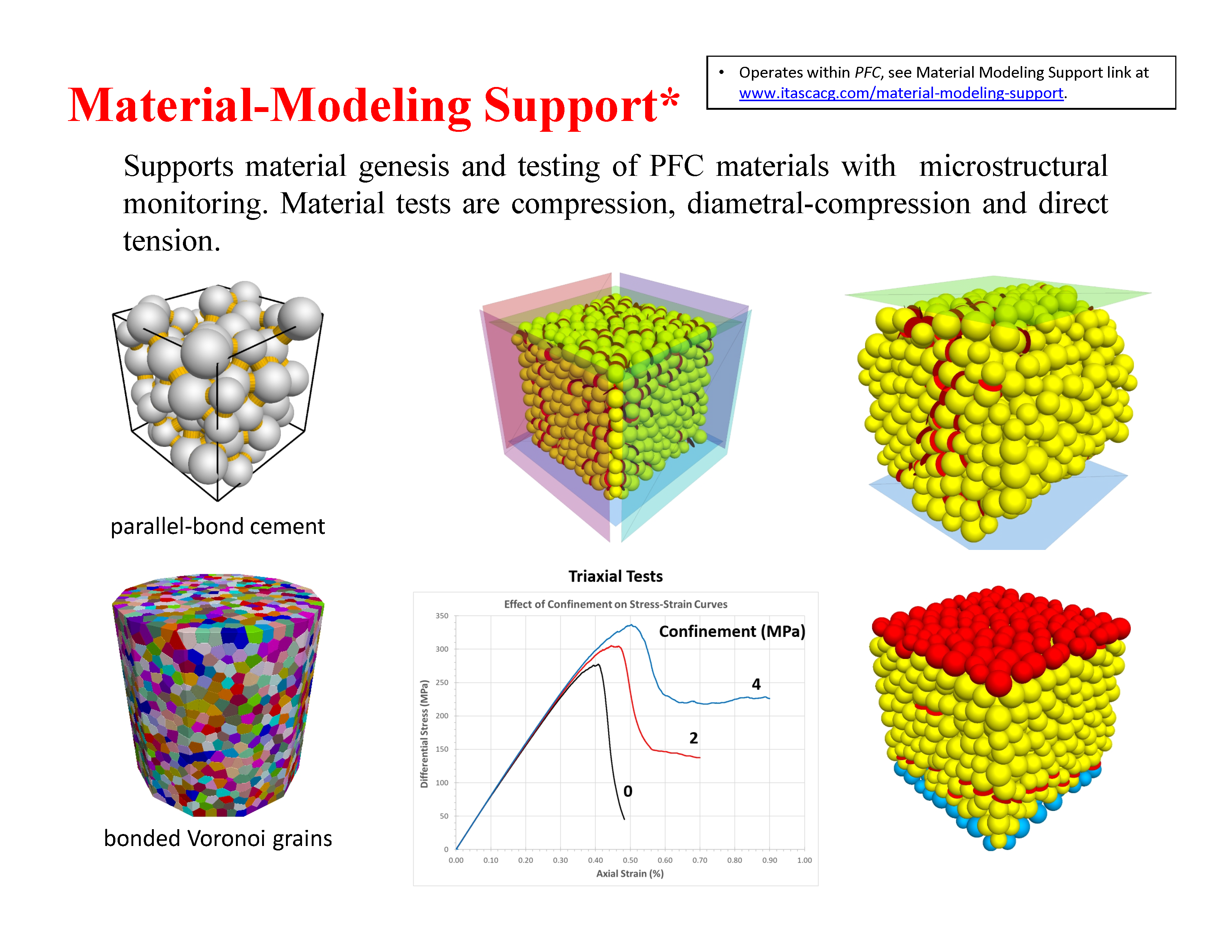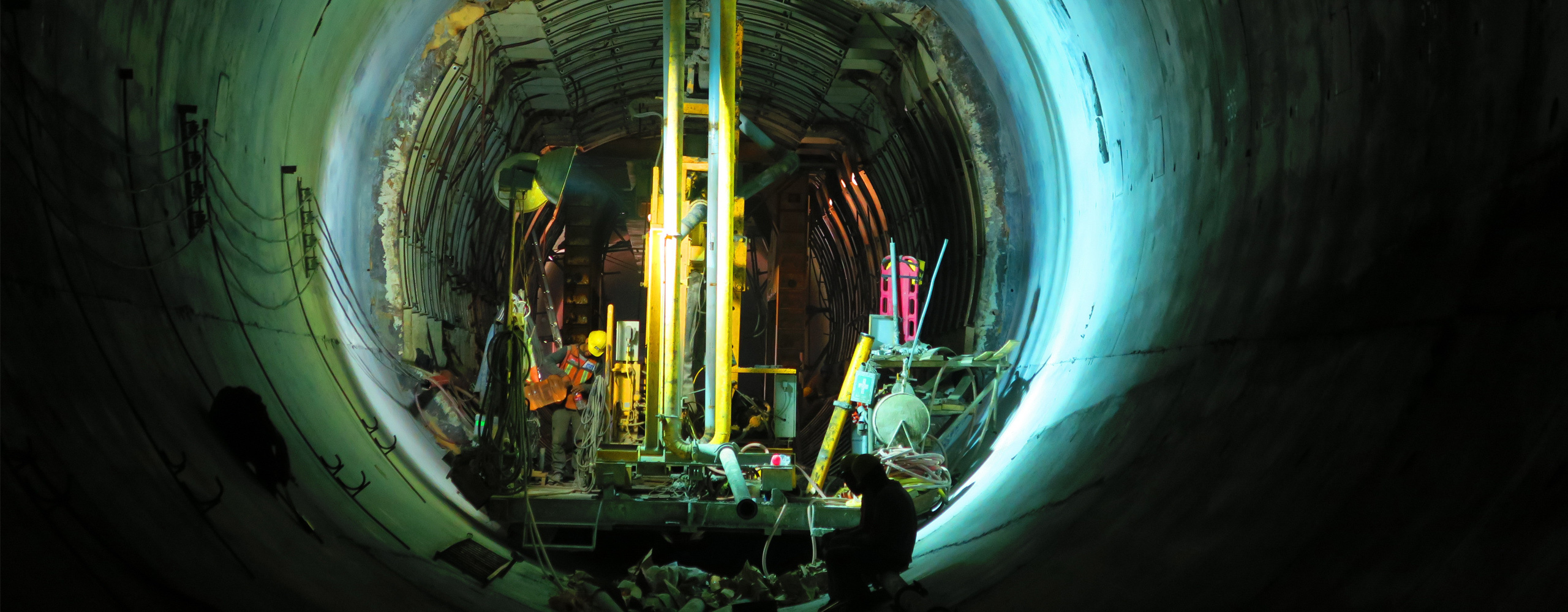Introduction
The PFC model provides a synthetic material consisting of an assembly of rigid grains that interact at contacts. This synthetic material encompasses a vast microstructural space, and only a small portion of this space has been explored. For example, the bonded-particle modeling methodology provides a rich variety of microstructural models in the form of bonded materials (Potyondy, 2015; Potyondy and Cundall, 2004). The PFC model includes both granular and bonded materials as well as an interface that can be inserted into the bonded materials. The support for material modeling that is provided by PFC2D and PFC3D is provided in the form of a consistent set of FISH functions, which we call the PFC FISHTank (or fistPkg). The PFC FISHTank provides a state of the art embodiment of four well defined materials and a user-defined material to support: practical applications (via boundary-value models made from these materials), and scientific inquiry (via further exploration of the microstructural space described above).
The syntax of commands and FISH items has been modified to be compatible with PFC 9.0. The packages for PFC 9.0, PFC 7.0, and PFC 6.0 use the naming convention fistPkg9.N, fistPkg7.N and fistPkg6.N, respectively (where N is the package version number).
Download the Material-Modeling Support Files

References
Potyondy, D. (2025) “Material-Modeling Support for PFC [fistPkg9.2],” Itasca Consulting Group, Inc., Technical Memorandum ICG7766-L (January 2, 2025), Minneapolis, Minnesota. DOWNLOAD LINK
Potyondy, D. O. (2015) “The Bonded-Particle Model as a Tool for Rock Mechanics Research and Application: Current Trends and Future Directions,” Geosystem Engineering, 18(1), 1–28. DOWNLOAD LINK
Potyondy, D.O., and P.A. Cundall. (2004) “A Bonded-Particle Model for Rock,” Int. J. Rock Mech. & Min. Sci., 41(8), 1329–1364. DOWNLOAD LINK
